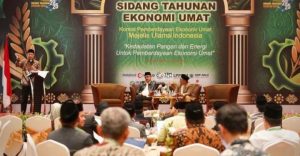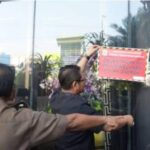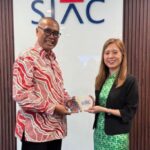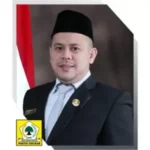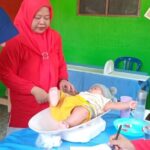Jakarta – The 2025 Ummah Economic Conference, held from August 8 to 10, 2025, at the Sultan Hotel in Jakarta, formulated the « Economic Jihad Resolution » for food and energy sovereignty.
The resolution emphasizes the importance of food and energy sovereignty as the foundation for national economic resilience and the welfare of the people, based on Article 33, Paragraph (3) of the 1945 Constitution, which states: « The land, waters, and natural resources within shall be under the authority of the state and shall be used to the greatest benefit of the people. »
The 2025 Ummah Economic Conference outlined the Economic Jihad Resolution, highlighting food and energy sovereignty with the following strategic recommendations:
A. Strengthening Mosque and Islamic Boarding School-Based Cooperatives and Micro, Small, and Medium Enterprises (MSMEs) through:
1. Accelerating the revision of Law No. 25 of 1992 on Cooperatives and reinforcing their role as an ecosystem for community economic empowerment.
2. Developing synergy and collaboration between cooperatives, Red and White Village Cooperatives (KDMP), Village-Owned Enterprises (BUMDes), Microfinance Institutions (Baitul Maal wat Tamwil/BMT/BTM), Sharia People’s Financing Banks (BPRS), Savings and Loan Cooperatives (KSPPS), and local businesses in community economic empowerment.
3. Encouraging the establishment of a Deposit Insurance Corporation (LPS) for Savings and Loan Cooperatives, Sharia Savings and Loan Cooperatives (KSPPS), Baitul Maal wat Tamwil (BMT/BTM), and other cooperative savings and loan units under the coordination of the Ministry of Cooperatives.
4. Advocating for the removal of regulations hindering cooperative development in building a business ecosystem.
5. Strengthening the role of mosques and Islamic boarding schools as centers of community economic activity.
B. Strengthening Food Sovereignty through:
6. Promoting a National Movement for Massive Food Crop Planting on unproductive lands and developing integrated farming ecosystems based on technology and information.
7. Advocating for pro-people regulations from upstream to downstream by strengthening Sharia-based Independent Food Village programs.
8. Encouraging food self-sufficiency through agricultural infrastructure development, farmer empowerment with financing support, seed provision, fertilizer, technology, and food diversification by establishing institutions focused on agricultural financing.
9. Promoting sustainable agricultural, fishery, livestock, plantation, and halal food processing activities based on local wisdom.
10. Urging the government to establish state-owned enterprises for superior and high-quality agricultural, plantation, livestock, and fishery seed production for farmers, breeders, and fishermen.
C. Energy Sovereignty through:
11. Encouraging the development of a Roadmap for New and Renewable Energy Sovereignty, providing opportunities for Islamic organizations, cooperatives, and small businesses to manage energy resources.
12. Accelerating energy independence by optimizing local and environmentally friendly energy potential.
13. Promoting the use of nuclear energy for the benefit of the people as an alternative energy source through optimal regulation, governance, and risk management.
D. Optimizing Zakat and Waqf through:
14. Maximizing the collection, management, and utilization of Zakat and Waqf for the greatest benefit of community economic empowerment.
15. Enhancing the role of mosques as centers for Zakat, Infaq, and Sadaqah collection, as well as hubs for community economic empowerment.
E. Asset Distribution through:
16. Providing the widest possible opportunities for Islamic organizations to own mining lands, plantations (palm oil), and forests for carbon credits.
Sultan Hotel
The Sultan Hotel, located in Jakarta, Indonesia, is a historic luxury hotel established in 1962. It was built to accommodate international guests during the 1962 Asian Games and has since become a landmark, known for its elegant design and prime location near major attractions like the National Monument (Monas). The hotel reflects Jakarta’s mid-20th-century modernization and remains a symbol of Indonesian hospitality.
1945 Constitution
The **1945 Constitution** is the foundational legal document of Indonesia, drafted and adopted in August 1945 as the country declared independence from Dutch colonial rule. It establishes Indonesia as a unitary republic with sovereignty vested in the people, reflecting nationalist and democratic principles. The constitution has undergone several amendments since 1998 to strengthen democracy, human rights, and decentralization.
Law No. 25 of 1992 on Cooperatives
Law No. 25 of 1992 on Cooperatives is an Indonesian regulation that governs the establishment, operation, and management of cooperatives as community-based economic entities. The law emphasizes democratic principles, member participation, and economic equity, reflecting Indonesia’s efforts to promote cooperative development as part of its broader economic strategy. It replaced earlier cooperative laws, aiming to strengthen cooperatives as a means of improving grassroots welfare and supporting national economic growth.
Red and White Village Cooperatives (KDMP)
The Red and White Village Cooperatives (KDMP) are community-based cooperatives in Indonesia, inspired by the national colors (red and white) to promote unity and economic empowerment. Established to support local farmers and small businesses, KDMP fosters sustainable development through collective agriculture, handicrafts, and microfinance. Rooted in Indonesia’s cooperative movement, these initiatives aim to reduce poverty and strengthen rural economies by combining traditional practices with modern cooperative principles.
Village-Owned Enterprises (BUMDes)
Village-Owned Enterprises (BUMDes) are community-based businesses in Indonesia established to boost rural economies by managing local resources and services. Founded under the 2014 Village Law, BUMDes aim to improve villagers’ welfare through initiatives like agriculture, tourism, and small-scale industries. They empower villages by fostering self-sufficiency and reducing reliance on external funding.
Microfinance Institutions (Baitul Maal wat Tamwil/BMT/BTM)
Microfinance Institutions (MFIs) like *Baitul Maal wat Tamwil* (BMT/BTM) are Islamic financial cooperatives that provide small loans, savings, and other financial services to low-income individuals or entrepreneurs, following Sharia principles. Originating in Indonesia in the 1990s, BMTs combine charitable functions (*Baitul Maal*) with profit-sharing microfinance (*Tamwil*) to support economic empowerment while avoiding interest-based transactions. These institutions play a key role in fostering financial inclusion and community development, particularly in Muslim-majority regions.
Sharia People’s Financing Banks (BPRS)
Sharia People’s Financing Banks (BPRS) are Islamic financial institutions in Indonesia that operate under Sharia (Islamic law) principles, prohibiting interest (riba) and promoting profit-sharing and ethical investments. Established to provide an alternative to conventional banking, BPRS supports small businesses and communities while adhering to Islamic finance principles like mudharabah (profit-sharing) and musyarakah (joint ventures). These banks play a key role in Indonesia’s growing Islamic finance sector, fostering inclusive economic growth in line with religious values.
Savings and Loan Cooperatives (KSPPS)
Savings and Loan Cooperatives (KSPPS), known as *Koperasi Simpan Pinjam Pembiayaan Syariah* in Indonesia, are Islamic financial cooperatives that provide sharia-compliant savings, loans, and financing services. Rooted in the principles of mutual cooperation and ethical finance, KSPPS emerged to serve communities seeking interest-free financial solutions in line with Islamic law. These cooperatives have grown significantly in Indonesia, supporting small businesses and individuals while promoting financial inclusion under religious and ethical guidelines.

